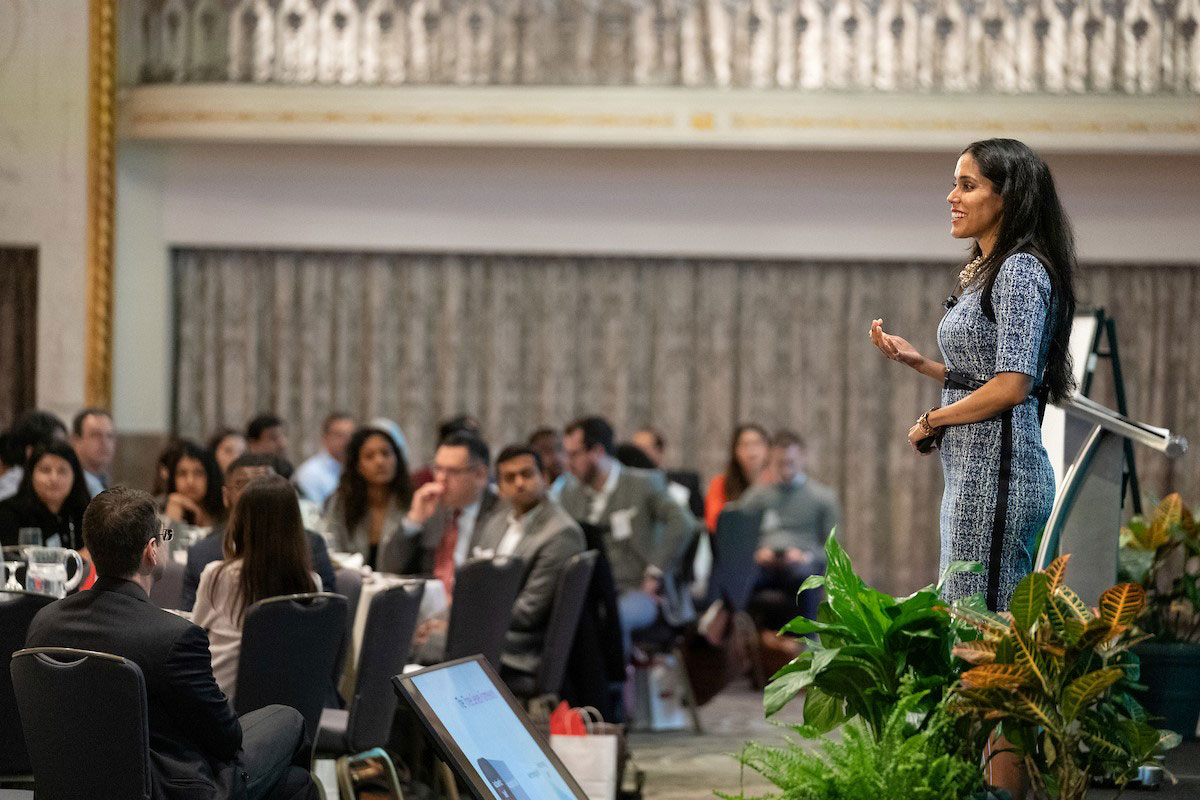
February is Black History Month, a month when we celebrate the contributions and achievements of Black communities throughout history and present day, in addition to exploring how to interrupt anti-Black racism. Unfortunately, in past years Black History Month has been a month that is rife with performative allyship, as organizations focus their diversity, equity and inclusion (DEI) programming on celebrating Black excellence and anti-Black racism for a month and then move on to other DEI offerings for the rest of the year.
While this approach was never sufficient for making a real difference to the lives of Black professionals, in light of the events of last year and the ongoing racial justice movement, it needs to be recognized that this approach is just not good enough.
In order to create more equitable and inclusive places to work — especially for Black professionals — organizations must make racial inclusion programming that focuses on anti-Black racism part of their regular DEI offering. We must continue to push learning and development for leaders and team members on how to interrupt anti-Black racism in the workplace, how to cultivate the skills development and career advancement of Black professionals, serve as sponsors for Black professionals and cultivate workplace cultures that are rooted in authenticity and belonging. All of our efforts in these areas are must dos for creating environments where Black professionals feel valued, empowered, confident and more.
There is also a need for specific empowerment, inclusion and leadership development programming for Black professionals so that Black team members feel like they are better able to thrive in the workplace, to access skills development opportunities that enable them to advance in their careers and to bring their authentic selves to work.
As a DEI professional who identifies as a person of color who isn’t Black (I’m South Asian/Punjabi – a.k.a. a Brown girl!), I also want to note that the majority of this leadership and empowerment training ought to be delivered by Black DEI professionals who are paid to do so — and who are compensated at the generous rates that organizations pay white leadership consultants, coaches and experts. The expertise of Black educators and experts must be spotlighted, and Black educators and experts must be equitably compensated.
While this last year has been challenging for many reasons, it has also been a period of incredible growth for and interest in DEI and, in particular, anti-Black racism. We are in a place now where we have an extraordinary opportunity to shift society and our workplaces for Black professionals.
As we celebrate Black history and Black excellence this February, let’s continue this momentum throughout 2021. There is still so much work to be done.
Sign up for bci’s mailing list to get the latest diversity, equity and inclusion insights right to your inbox every month.
The bci team primarily works from lands that are part of the Dish With One Spoon Territory, a treaty between the Anishinaabe, Mississaugas and Haudenosaunee that brought these communities together to share, serve and protect these lands.
bci is deeply committed to honoring the spirit of this treaty, and we recognize our privilege in enjoying the benefits of these lands, which supports all that we do. We’re passionately focused on undertaking our DEIB work in alignment with the values of Truth and Reconciliation, and we actively seek to decolonize societal and workplace systems, as well as our individual behaviors.
Komal is bci’s Senior DEI Consultant and Mental Health Expert-in-Residence and an accomplished DEI facilitator, coach, and strategist. Komal has over 20 years of experience in providing strategic and advisory guidance and program development across a range of sectors, with a particular concentration in mental health and racial inclusion. Komal is also the founder of Insayva Inc., a social enterprise focused on providing accessible DEI and health equity support to charities and non-profit organizations.
Komal has extensive experience in creating and delivering programming in a range of DEI areas, including unconscious bias, cultural competence, mental health inclusion, psychological safety, and allyship. She is passionate about driving transformational change in workplaces and has worked closely with bci clients — corporations, professional services firms, health care providers, and educational institutions — to embed cultures of DEI within their organizations.
Komal has provided one-on-one inclusion coaching to hundreds of senior leaders and brings a unique approach that is informed by her background as a therapist. She is able to expertly handle sensitive conversations and situations and works with leaders to develop the knowledge and skills necessary to advance racial/ethnocultural, gender, and mental health-related equity across teams and organizations. Komal also offers a performance coaching program designed specifically for BIPOC leaders. This program aims to help BIPOC leaders harness their place, position, and identity to thrive in the workplace and beyond. Komal is a qualified administrator of the Intercultural Development Inventory (IDI).
As bci’s Mental Health Expert-in-Residence, Komal offers tremendous expertise around workplace mental health. As a doctoral trained mental health clinician, certified health executive, and registered social worker, Komal has assisted organizations looking to advance employee mental health inclusion and well-being through offering programming on inclusive dialogue, anti-stigma, burnout prevention, psychological safety, resilience, and self-care. Komal is committed to advancing mental health and wellness across the life course; she currently serves on the board of the Alzheimer’s Society of Ontario and previously served on the board of Children’s Mental Health Ontario and the YMCA of Greater Toronto.
When Komal is not working, you’ll find her painting, cooking or snuggling with her cat.